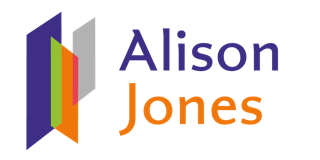One of the hardest days of the 10-day Business Book Proposal Challenge is Day 5: author biography. It’s like writing your CV for that first job: how to come across as confident and credible without sounding cocky?
Part of the problem with writing the ‘About the Author’ piece is seeing yourself as an author in the first place – which is why all that mindset stuff really matters. But there are more specific issues too that beset the proposal challengers – typically doubt about their qualifications, discomfort with blowing their own trumpet, and an inability to pick out the bits of their life that matter to a reader and lose the rest.
There are two kinds of credentials these days, formal and social, and their relative importance and the balance between them will depend on the kind of book you’re writing.
Formal credentials include obvious things like qualifications: your Masters in Psychology or your honorary doctorate, and any published research you’ve done. They also include relevant industry experience and positions, including your professional experience and notable jobs but also wider roles such as chairing a trade organization or contributing to an industry publication. What’s great about those sorts of credentials is they not only say you know what you’re talking about, they suggest that you’re well connected and well respected in the area, so use them for all they’re worth. If you’re writing a book for students or professionals strong formal credentials are vital.
However social credentials are also becoming more and more important, so no matter how good your formal credentials are, you need to pay them some attention. And if your formal credentials are week, this is where you have to demonstrate your credibility. If you can show me that other people are listening to you, that you’ve already moved the needle, then I’m more likely to believe that you’re worth listening to.
So how do you evidence those social credentials in your biography? Here’s some ideas:
· endorsements: what well-known/respected people in the field say about you
· speaking engagements
· workshops or seminars that you’ve led
· your own blog
· popular blogs or publications, for which you’ve written
· your own podcast or podcasts that you’ve appeared on as a guest
· your YouTube channel
· books you’ve already written
· a popular Facebook page or group
· a strong following on other social media channels such as Twitter or Instagram.
Choose the ones that are strongest for you, obviously, but make sure they’re relevant: there’s no point having 10,000 active followers as a mummy blogger if you’re writing a book about financial planning.
Depending on the book, your own personal story can be one of the most important parts of your biography: the fact that you were an alcoholic and you’re writing about recovery is obviously important, for example. But if you’re going into your own story be really disciplined with yourself, keep it to the relevant details and don’t be tempted to give the world a full autobiography.
The final thing you need to think about in terms of credentials are your contacts, and if both your formal and your social credentials are weak, these can save the day: if you haven’t got a Facebook profile but you’re best friends with Oprah, the world will probably still listen to you.
I wish it wasn’t this way, truly. I wish you could just write a really good book and have readers recognize its quality and fall over themselves to read it, but that isn’t the world we live in any more. Some might say it never was.
The good news is that if your biography looks a bit weedy right now that’s ok, because you can use the writing of your book to build your platform and beef it up.
But no matter how weedy it is, it’s important to write your biography sooner rather than later. You’ll need it for a proposal if you’re submitting one, of course, but you’ll also need it for marketing materials as you increase your visibility as the author of your ‘forthcoming book’ and it’s a great exercise in any case to make you focus on what it is about you that’s distinctive and engaging to readers.
And once you’re happy with it – for now at least – have a think: how can you use that biography in your business? What haven’t you been making the most of up to this point? What do you need to work on in future?
